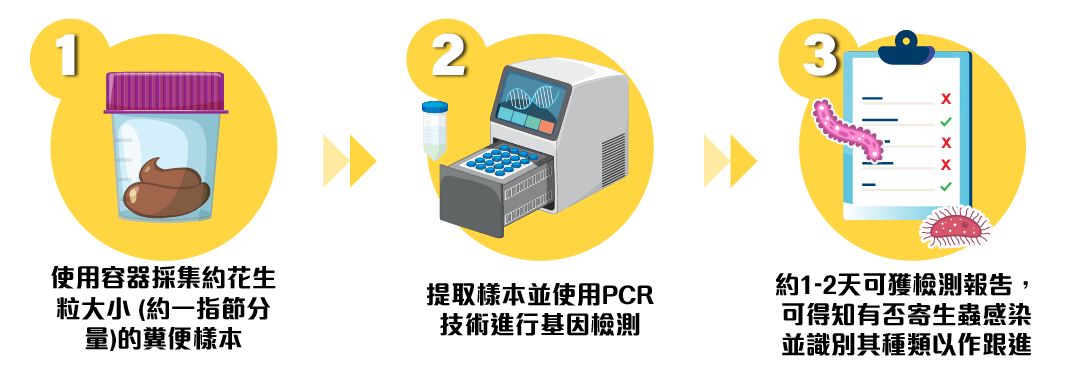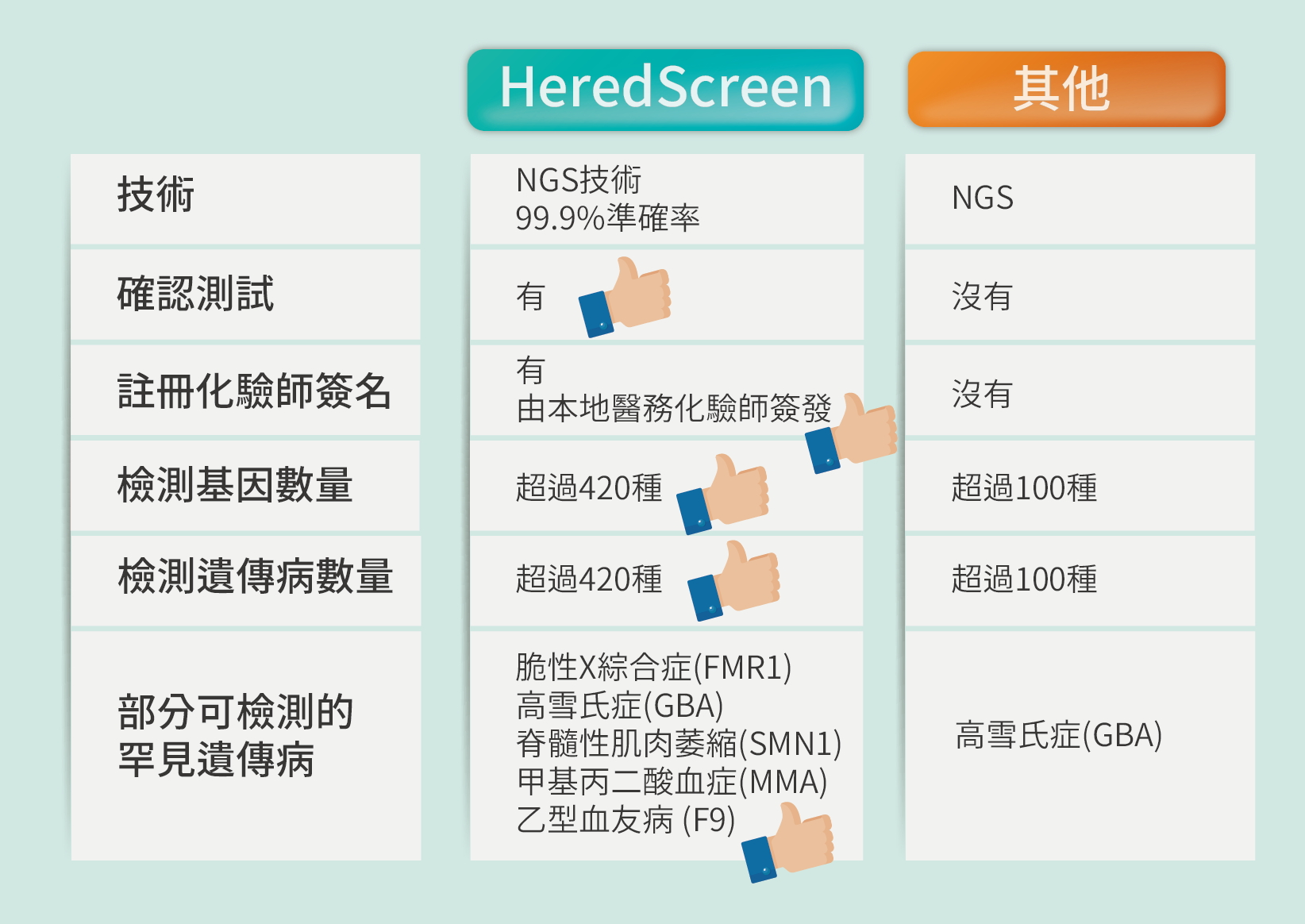
|
|
Advanced Version |
Standard Version |
|
Chromosomal trisomy |
22 |
3 |
|
Microdeletion syndrome |
126 |
7 |
|
Sex chromosome related diseases |
4 |
4 |
|
Test code |
SAFE21P |
SAFE21 |
|
Sample requirements |
10mL blood tube x 1 |
10mL blood tube x 1 |
|
Test time (working days) |
5 * |
5 * |
|
Test fee |
Special Offer: $7600 |
Special Offer: $5500 |

| Code | Test | Sample format | TAT (Working day) | |
| YPAT | Y-chromosome Maternal Serum Paternity Test | Maternal blood |
10mL Cell-Free DNA BCT x 2 |
3 |
|
1 alleged father |
Father, Buccal Swab x 2 or 3 mL EDTA Blood x 1 or Hair sample (including follicles) |
|||
| XYPAT | Maternal Serum Paternity Test | Maternal blood | 10mL Cell-Free DNA BCT x 2 | 3 |
| 1 alleged father |
Buccal Swab x 2 or 3 mL EDTA Blood x 1 or Hair sample (including follicles) |
|
||
| Code | Test | Sample format | TAT (Working day) | |
| 1 alleged father/mother | Buccal Swab x 3 | |||
| PATL |
Paternity Test (Legal Use) |
Child |
Buccal Swab x 3 or 3 mL EDTA Blood x 1 |
14 |
| 1 alleged father/mother |
Buccal Swab x 3 or 3 mL EDTA Blood x 1 |
|||
| PATN |
Paternity (Non-Legal Use) |
Child |
Buccal Swab x 3 or 3 mL EDTA Blood x 1 |
7 |
| 1 alleged father/mother |
Buccal Swab x 3 or 3 mL EDTA Blood x 1 |
|||
1. Please do not eat or drink for at least 1 hour before the sampling.
2. If a blood transfusion was received in the past 2 months, or an allogeneic hematopoietic progenitor cell transplantation (bone marrow transplantation) was received at any time, false results can be obtained. For enquiries, please contact Customer Service at 3585 8533.
3. The following pregnant women are not suitable for the above tests:
- those who are carrying triplets or more;
- those who have undergone abortion/miscarriage/delivery within the last two months will not be accepted for testing.
4. The following pregnant women are only eligible for specified tests/weeks:
- surrogate clients are only eligible for the YPAT test;
- those who have undergone artificial insemination (IVF) must be at least 7 weeks pregnant to undergo the above tests.
Short Tandem Repeat (STR) DNA typing is used to conduct the relationship testing. STRs are short repeated DNA sequences found in the chromosome of every individual. An individual inherits one copy of an STR from each parent, and unrelated people almost certainly have different repeat units. Thus, STR is an effective marker of biological relationships.
| Code | Test | Sample Format | TAT (Working day) |
| PATL |
Relationship Test (Legal Use) |
Buccal Swab x 2 or 3ml EDTA Blood x 1 | 14 |
| PATN |
Relationship Test (Non-Legal Use) |
Buccal Swab x 2 or 3ml EDTA Blood x 1 | 7 |
1. Please do not eat or drink for at least 1 hour before the sampling.
2. If a blood transfusion was received in the past 3 months, or an allogeneic hematopoietic progenitor cell transplantation (bone marrow transplantation) was received at any time, false results can be obtained. For enquiries, please contact Customer Service at 3585 8533.
時代基因檢測中心以先進的DNA基因測序技術,透過分析糞便中的寄生蟲DNA 來診斷寄生蟲感染,即使微量或較難以顯微鏡察覺的寄生蟲亦能偵測到,準確性比傳統方法高;此方法更可準確區分出寄生蟲及蟲卵的品種,以及其他腸道病毒 (如乙型肝炎病毒、幽門螺旋桿菌),以便醫生為患者對症下藥。

|

|
| ‧ 微細的寄生蟲亦能偵測出來,準確度較傳統方法高 | ‧ 及早於症狀不明顯或寄生蟲數量極少時檢驗出來 |

|

|
| ‧ 靈敏度超過99%,精準區分不同的寄生蟲或病原體種類 | ‧ 較一般大便常規檢查所檢測的種類更多更廣泛 |

| 檢測種類 | 主要傳播途徑 | |
| 幽門螺旋桿菌 | 乙型肝炎病毒 | 可經唾液或體液傳播 |
| 隱胞子蟲屬 | 雙核阿米巴 | 可經不潔食物或受污染水感染,部分亦有機會因接觸受污染物品後再經手接觸口部而感染 |
| 中華肝吸蟲 | 腸腦炎微孢子蟲 | |
| 環孢子蟲 | 芽囊原蟲屬 | |
| 腸賈第鞭毛蟲 | 痢疾阿米巴 | |
| 比氏腸胞微孢子蟲 | 沙門氏菌屬 | |
| 牛帶絛蟲 | 豬帶絛蟲 | |
| 毛首鞭形線蟲 | 糞小桿線蟲 | 可經受污染土壤或食物而感染 |
| 蛔蟲 | 管形鉤口線蟲 | |
| 美洲鉤蟲 | 十二指腸鉤口線蟲 | |
| 犬鉤口線蟲 | 錫蘭鉤口線蟲 | |
| 蠕形住腸線蟲 | 接觸受污染物品後,經口食或吸入感染 | |
| 測試代碼 | 測試名稱 | 樣本要求 | 測試需時 (工作天) |
| PSDNA |
寄生蟲及病原體大便檢測 |
糞便樣本 | 1-2天 |
| 測試編碼 | 測試名稱 | 樣本要求 | 測試需時 (工作天) |
| MYH7 | Inherited MYH7 Cardiac SNPs Test | Buccal Swab x 2 | 5 |
HeredScreen基康檢隱性遺傳病基因檢測可讓夫婦及早發現隱性致病基因,如發現二人均有相同的疾病基因,早期懷孕的孕婦可得知寶寶日後會否有健康及發育問題。夫婦可盡早於懷孕時、寶寶出生後、日後成長方面,規劃好所需的支援。
⦁ 全面涵蓋300+種隱性基因疾病,覆蓋香港最常見的隱性遺傳病
⦁ 採用次世代測序技術(NGS)超大規模測序,一次過檢查數以百萬計基因段,每個位置檢查最少50次
⦁ 準確率高達 99.9%
⦁ 有效分辨脊髓性肌肉萎縮症的沉默基因攜帶者
⦁ 採用最新測序技術「固態測序」,將整條FMR1基因讀取,一次性檢測就能精確評估脆性X綜合症風險
⦁ 詳細報告列明風險疾病資訊、基因狀況及疾病風險等

| 適用對象 | |||
| 進行婚前檢查伴侶 | 計劃懷孕夫婦 | 早期懷孕階段孕婦 | 進行人工受孕夫婦 |
| 測試代碼 | 測試名稱 | 樣本要求 | 測試需時 (工作天) | 檢測費用 |
| HERED | 420+隱性基因疾病檢測 | 6mL EDTA採血管 x 1 | 30 |
$7,900
|

| 測試代碼 | 測試名稱 | 樣本要求 | 測試需時 (工作天) | 檢測費用 |
| HBADNA | 地中海貧血基因檢測A | 3mL EDTA採血管 x 1 或 口腔拭子 x 2 | 5 | $3,200 |
| HBBDNA | 地中海貧血基因檢測B | 3mL EDTA採血管 x 1 或 口腔拭子 x 2 | 5 | $3,200 |
| HBDNA | 地中海貧血基因檢測A&B | 3mL EDTA採血管 x 1 或 口腔拭子 x 2 | 5 | $3,800 |

完成測試後,有機會獲免費骨質密度檢查 (DEXA) 乙次 或 骨質密度檢查優惠券乙張
閣下資料將會用作此推廣活動聯絡用途,如因資料有誤而未能聯絡閣下,本公司一概不負上任何責任。